
January 9
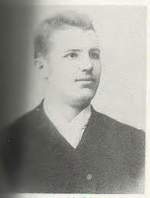
1896 Alois Hitler II: Adolf Hitler's older half-brother—who had been the center of paternal energies since Alois senior's retirement—considered that he was being neglected by his stepmother and abused by his father, who beat him "unmercifully with a hippopotamus whip." After playing hooky from school on three occasions and receiving his due punishment, Alois II rebels and runs away from home at the age of 14. Alois I retaliates by reducing his inheritance to the legal minimum.
32 years later, in a 1948 interview, Alois II will still feel much resentment:
He (Adolf) was imperious and quick to anger from childhood onward and would not listen to anyone. My stepmother always took his part. He would get the craziest notions and get away with it. If he didn't get his way he got very angry. . . . . He had no friends, took to no one, and could be very heartless. He could fly into a rage over any triviality.
Alois II will go on to lead an eventful life, including being jailed at least three times, twice for theft, once for bigamy. Hitler biographer Robert Payne, in The Life and Death of Adolf Hitler, says of Alois II:
Although Alois Jr. was the black sheep , he was probably the happiest member of the family. He had an earthy robust character, charmed women, and lived by his wits. He was always inventing schemes for getting rich quickly, and most of them came to grief. Neither prison nor poverty soured him. He was unfailingly good-humored and polite, even when he was about to be sentenced by a judge or when he was abandoning his latest wife. He was one of those who enjoy life to the full."
Adolf now becomes the oldest male child in the household, to whom all the relevant paternal attention applies. [For further details, Click here.]
1898 Birth: Gracie Fields:
Dame Gracie Fields, DBE (born Grace Stansfield . . . was an English actress, singer and comedian and star of both cinema and music hall. She spent the later part of her life on the isle of Capri, Italy. Fields was made a Commander of the Order of the British Empire (CBE) for "services to entertainment" in 1938, and in 1979, seven months before her death, she was invested a Dame by Queen Elizabeth II.
In 1939, Fields suffered a breakdown and went to Capri to recuperate. World War II was declared while she was recovering in Capri, and Fields – still very ill after her cancer surgery, threw herself into her work and signed up for the Entertainments National Service Association (ENSA) headed by her old film producer, Basil Dean. Fields travelled to France to entertain the troops in the midst of air-raids, performing on the backs of open lorries and in war-torn areas. She was the first artist to play behind enemy lines in Berlin.
Following her divorce from Archie Pitt, she married Italian-born film director Monty Banks in March 1940. However, because Banks remained an Italian citizen and would have been interned in the United Kingdom after Italy declared war in 1940, she went with him to North America, possibly at the suggestion of Winston Churchill who told her to "Make American Dollars, not British Pounds", which she did, in aid of the Navy League and the Spitfire Fund. She and Banks moved to their home in Santa Monica, California. Fields occasionally returned to Britain, performing in factories and army camps around the country. After their initial argument, Parliament offered her an official apology.
Although she continued to spend much of her time entertaining troops and otherwise supporting the war effort outside Britain, this led to a fall-off in her popularity at home. She performed many times for Allied troops, travelling as far as New Guinea, where she received an enthusiastic response from Australian personnel. In late 1945 she toured the South Pacific Islands. [For further information, click here.]
1913 Birth: Richard Milhous Nixon, 37th president of the United States:
The son of Quaker parents, Nixon grew up in the southern California city of Yorba Linda. Early on he proved himself to be a stellar student, attending Whittier College and graduating from Duke University Law School with honors. Nixon then joined the Navy and served during World War II as a lieutenant commander in the Pacific theater. After the war, he gravitated toward Republican politics, joining the post-war anti-communist crusade.
In 1950, Nixon ran against Democrat Helen Gahagan Douglas for a seat in the House of Representatives for California, earning the less-than-complimentary nickname Tricky Dick during the campaign for his ruthless red-baiting of his opponent, including alleging that Douglas was pink down to her panties. He won and gained national attention when, as a member of the House Un-American Activities Committee (HUAC), Nixon relentlessly grilled Alger Hiss, a Roosevelt New Deal liberal and former secretary general of the United Nations, at a hearing regarding allegations that Hiss facilitated communist infiltration of the U.S. government. Hiss, legally immune from espionage charges, was later convicted of perjury. The conviction, despite Hiss' denial of any wrongdoing, equaled an admission of guilt in the eyes of hard-line anti-communists. Largely due to his record of relentlessness in combating communism, Nixon earned the vice-presidential spot on the Republican ticket with Dwight D. Eisenhower in 1952. [For further details, Click here.]
1917 World War I: Various: War at Sea:
Battle of Khadairi Bend begins: After several months of preparations, British troops under the command of their new regional chief Sir Frederick Maude launch an offensive against Turkish forces at Khadairi Bend, to the north of Kut, Mesopotamia. [For further details, Click here.]
1918 World War I:
Click here for the January 9, 1918 issue of the superior American periodical The Outlook, featuring many articles relating to the War by the finest jounalists and commentators of the day.
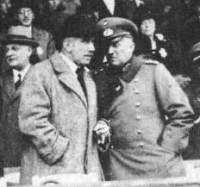
1933 Weimar: Franz von Papen continues his intrigues during a meeting with Chancellor Schleicher. He gives Schleicher the impression that Hitler is prepared to accept a 'junior partnership' in a cabinet and the ministries of Defense and Interior for his cooperation. Later the same day, Papen meets with Hindenburg and states that Hitler has reduced his demands and is willing to enter a government with other right-wing parties; with the assumption that Papen would be Chancellor. Hindenburg encourages him to keep the negotiations going.
1934 Antisemitism: A student union in Budapest calls for a boycott of university classes until anti-Jewish legislation is passed.
1936 The semiautomatic rifle is adopted by the United States Army, and will remain standard issue until 1967.
1938 Max Warburg dedicates a new Jewish Community Center in Hamburg.
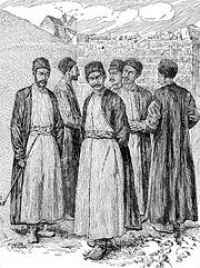
1939 Holocaust: Karaites: The Reich Office of Racial Research exempts Karaites from Jewish racial status, although with misgivings as to their religious practices. Although there was no love for Karaites among mainstream Jews, they had supported the Karaites' claim not to be Jews, in the hope that the Karaites would not be subject to mass murder. Many Karaites were killed by the Germans and their allies, simply because they were mistaken for Jews.
1940 Murder: Hildebrandt, chief of the SS and Police in Danzig and West Prussia (and, from 1943 onwards, head of the RSHA), reports to Himmler on the shootings of German and Polish mental patients, which he has carried out:
The other two units of storm troopers at my disposal were employed as follows during October, November, and December . . . . For the elimination of about 4,400 incurable patients from Polish mental hospitals . . . . For the elimination of about 2,000 incurable patients from the Konradstein mental hospital.
1941 Adolf Hitler: Industrialist Fritz Thyssen claims that Hitler is the illegitimate grandson of Baron Rothschild of Vienna. Hans-Jurgen Koehler corroborates this story in a top secret (and terribly inaccurate) OSS report written in 1943. Even though there is no evidence whatsoever for the spurious notion, possible choices are: Salomon Mayer Rothschild (1774-1885, 62 in 1836) and Amschel Salomon Rothschild (1803-1874, 33 in 1836. Amschel Salomon lived in Frankfurt until 1850). (THP)
1943 World War II: FDR to Stalin:
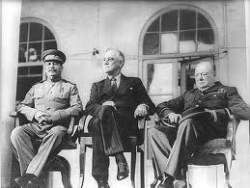
I have arranged that two hundred C-47 transport planes be assigned to you in 1943 beginning in January. Your mission here is being advised of the dates of delivery by months. I am going to do everything I can to give you another one hundred but you can definitely count on the two hundred planes referred to above.
1944 World War II: From the Fuehrer's headquarters, signed by Alfred Jodl:
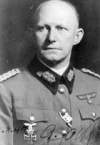
It is of no importance to establish documentary proof of breaches of international law. What is important, however, is the collection of material suitable for a propaganda presentation of a display trial. A display trial as such is therefore not meant actually to take place but merely to be a propaganda presentation of cases of breaches of international law by enemy soldiers, who will be mentioned by name and who have already either been punished with death or are awaiting the death penalty The Chief of the OKW asks the Chief of the Foreign Department to bring with him pertinent documents for his next visit to the Fuehrer's headquarters.
1945 World War II: Various: United States invades Luzon in Philippines:
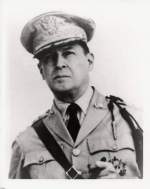
On this day, Gen. Douglas MacArthur and the American 6th Army land on the Lingayen Gulf of Luzon, another step in the capture of the Philippine Islands from the Japanese.
The Japanese controlled the Philippines from May 1942, when the defeat of American forces led to General MacArthur's departure and Gen. Jonathan Wainwright's capture. But in October 1944, more than 100,000 American soldiers landed on Leyte Island to launch one of one of the bloodiest battles of the Pacific war-and herald the beginning of the end for Japan.
Newsreels captured the event as MacArthur waded ashore at Leyte on October 20, returning to the Philippines as he had famously promised he would after the original defeat of American forces there. What the newsreels didn't capture were the 67 days it took to subdue the island, with the loss of more than 55,000 Japanese soldiers during the two months of battle and approximately 25,000 more soldiers killed in smaller-scale engagements necessary to fully clear the area of enemy troops. The U.S. forces lost about 3,500.
The sea battle of Leyte Gulf was the same story. The loss of ships and sailors was horrendous for both sides. That battle also saw the introduction of the Japanese kamikaze suicide bombers. More than 5,000 kamikaze pilots died in this gulf battle, taking down 34 ships. But the Japanese were not able to prevent the loss of their biggest and best warships, which meant the virtual end of the Japanese Imperial Fleet.
These American victories on land and sea at Leyte opened the door for the landing of more than 60,000 American troops on Luzon on January 9. Once again, cameras recorded MacArthur walking ashore, this time to greet cheering Filipinos. Although the American troops met little opposition when they landed, they lost the light cruiser Columbia and the battleship Mississippi, to kamikazes, resulting in the deaths of 49 American crewmen.
The initial ease of the American fighters' first week on land was explained when they discovered the intricate defensive network of caves and tunnels that the Japanese created on Luzon. The intention of the caves and tunnels was to draw the Americans inland, while allowing the Japanese to avoid the initial devastating bombardment of an invasion force. Once Americans reached them, the Japanese fought vigorously, convinced they were directing American strength away from the Japanese homeland. Despite their best efforts, the Japanese lost the battle for Luzon and eventually, the battle for control over all of the Philippines. (History.com)
Churchill to Stalin:
I am most grateful to you for your thrilling message. I have sent it over to General Eisenhower for his eyes only. May all good fortune rest upon your noble venture. 2. The battle in the West goes not too badly. There is a good chance of the Huns being crushed out of their salient with very heavy losses. It is predominantly an American battle, and their troops have fought splendidly, with heavy losses. We are both shoving everything in we can. The news you give me will be a great encouragement for General Eisenhower, because it gives him the assurance that the German reinforcements will have to be split between our flaming fronts. The battle in the West will be continuous, according to the generals responsible for fighting it.
1946 Nuremberg Tribunal:

Continuation of the Case against Joachim [von] Ribbentrop.

Motion regarding Case Against Hans Frank.
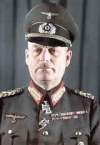
Case against Wilhelm Keitel and Alfred Jodl.
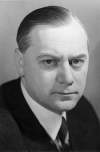
Beginning of the Case against Alfred Rosenberg.
1947 Paperclip: Rabbi Stephen Wise pens a letter to the US Secretary of State, protesting the "ardent pro-Nazis" of Operation Paperclip being in the US while visas to concentration camp survivors are being delayed:
Red tape, lack of shipping facilities, and every possible handicap face these oppressed people, while their oppressors are brought to this country and are favorably housed and supported at our expense. As long as we reward former servants of Hitler while leaving his victims in D.P. (Displaced Persons) camps, we cannot pretend that we are making real effort to achieve the aims we fought for. [See: Wunderwaffen: Hitler's Deception and the History of Rocketry.]
1952 Truman warns of Cold War dangers:

In his 1952 State of the Union address, President Harry S. Truman warns Americans that they are "moving through a perilous time," and calls for vigorous action to meet the communist threat.
Though Truman's popularity had nose-dived during the previous 18 months because of complaints about the way that he handled the Korean War, his speech received a standing ovation from congressmen and special guest Prime Minister Winston Churchill.
Truman spent much of his speech addressing foreign policy concerns. The primary focus was on meeting the communist challenge. The president declared that the United States was confronted with "a terrible threat of aggression." He also pointed with pride to U.S. action in meeting that threat. In Korea, combined U.S. and United Nations forces "turned back the Chinese Communist invasion;" elsewhere in Asia, U.S. assistance to its allies was helping to "hold back the Communist advance;" and in Europe and the Middle East, the fight against Soviet expansion was also ongoing.
Truman was particularly proud of the Point Four program, which provided U.S. scientific and technical assistance (such as in the field of agriculture) to the underdeveloped world, claiming that it helped "feed the whole world so we would not have to stomach communism." There could be no slacking of effort, however, since the Soviet Union was "increasing its armed might," and with the Soviet acquisition of atomic bomb technology, the world was still walking "in the shadow of another world war."
Truman's speech was a stirring rebuttal to domestic critics like Senator Joseph McCarthy, who attacked Truman's "softness" on communism. Perhaps such criticism contributed to Truman's decision not to run for re-election. Adlai Stevenson ran as the Democratic candidate, but he lost the election to Dwight Eisenhower. (History.com)
1953 Spandau Prison: Albert Speer writes to his daughter, Hilde:
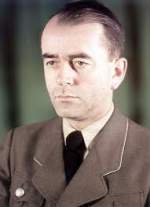
My parents didn't go to church . . . and in school the chaplain was in the unintelligent habit of imposing the learning of Psalms by heart as a punishment! You can imagine how that called forth my spirit of contradiction. Your mother and I did marry in a church, but I can't claim to have felt anything then: we just did it to please her parents. And so, even though when you were born we were still members of the church, we didn't have you baptized . . . . It really wasn't that Hitler forced anything on us—on the contrary, he forbade his closest circle, Hess, Goebbels, Goering, etc., to leave their churches, and he himself, as you may know, never formally renounced the Catholic Church. You may say that was just political expediency, but I'm not sure I would agree: I suspect that i the way of many Catholics, he somehow couldn't give it up. I think they always believed that renouncing the church would bring Gods wrath upon them. When your mother and I did leave the [Protestant] church, it was in reaction to the political opposition of the churches to Hitler—I suppose it was a sort of statement of loyalty. Silly. But we did decide together to make Albert attend Sunday school in Berchtesgaden—perhaps the only sensible thing we did.
And then, of course, there was Nuremberg, with two exceedingly kind American chaplains at a time when kindness was in low supply, and . . . then, of course, in Spandau, there was Casalis, the most unique man I have known . . . . You write that in your discussions about God, rational considerations argues against rather than for His existence. Well, I am against applying reason to God, for the miracles of nature show that reason has nothing to do with it, or Him. How do you explain that the peas I deliberately planted in the spring in a deep hole unfailingly pierced fifteen centimeters of earth to shoot straight up out of the ground? And what about the fern I planted by mistake upside down? It turned itself around, to grow straight up, bypassing its own root. I know, you can find reasons: the nature of growth; Schopenhauer's 'Will For Life' [sic] or whatever. Of course one can always say no, but if you are honest you have to admit that these are miracles, which become more mysterious he more you ponder them . . . . I have read and thought so much by now, and I suppose the knowledge I gain will remain with me later. I only hope though that I won't lose the feeling for faith once I'm back in ordinary life . . . . As you see, it is ethics which particularly interest me . . . . I read again and again what Jaspers said: "Evil will rule unless I confront it at all times in myself and in others." (Sereny)

1954 Spandau Prison: From Spandau: The Secret Diaries, by Albert Speer:
[Walter] Funk had been bedridden for days. (Speer II)
1962 Japan and the United States sign an agreement for Japan to pay $290 million in settlement of its debt for postwar US aid.
Edited by Levi Bookin (Copy editor)
levi.bookin@gmail.com



Click to join 3rdReichStudies

FAIR USE NOTICE: This site may contain copyrighted material the use of which has not always been specifically authorized by the copyright owner. We are making such material available in our efforts to advance understanding of historical, political, human rights, economic, democracy, scientific, environmental, and social justice issues, etc. We believe this constitutes a 'fair use' of any such copyrighted material as provided for in section 107 of the US Copyright Law. In accordance with Title 17 U.S.C. Section 107, the material on this site is distributed without profit to those who have expressed a prior interest in receiving the included information for research and educational purposes. If you wish to use copyrighted material from this site for purposes of your own that go beyond 'fair use', you must obtain permission from the copyright owner.
Please note that the list-owner and the moderators are not responsible for, and do not necessarily approve of, the random ads placed on our pages by our web server. They are, unfortunately, the price one pays for a 'free' website.